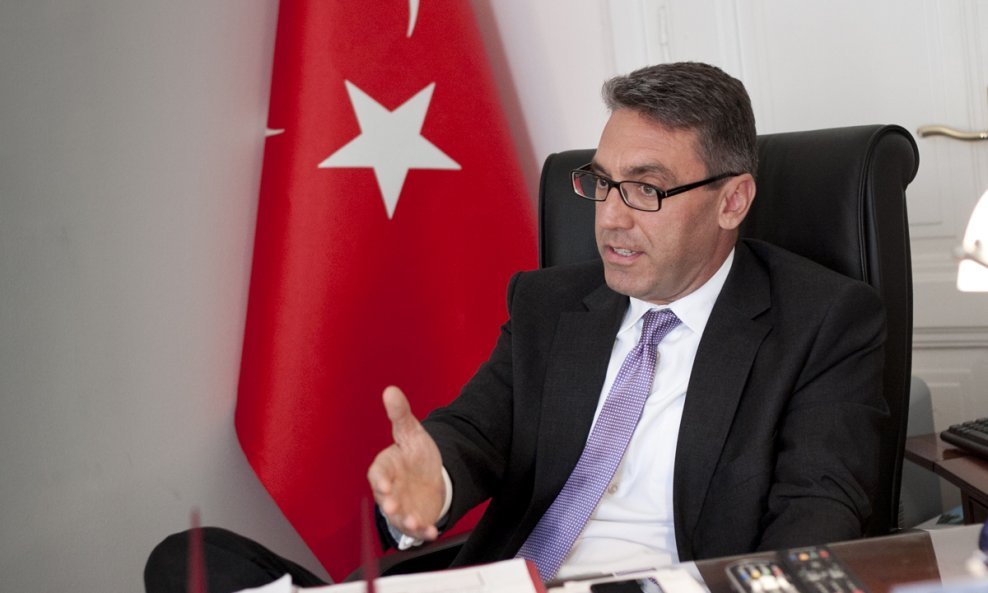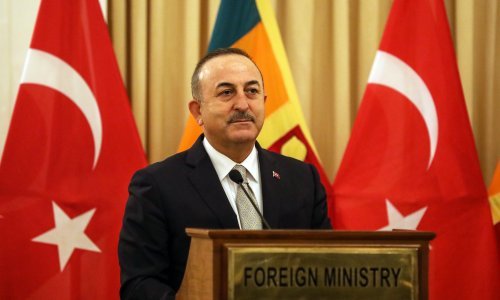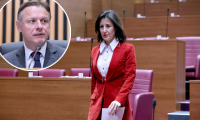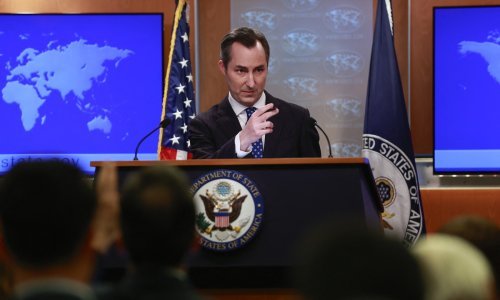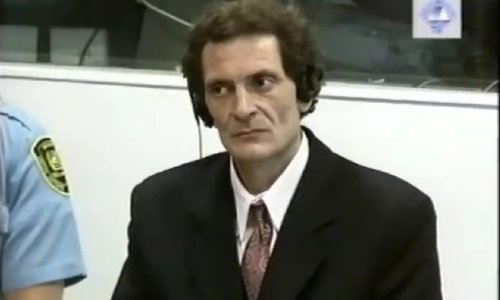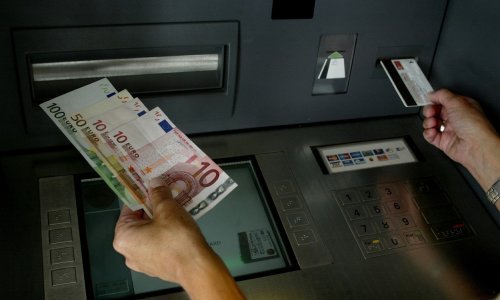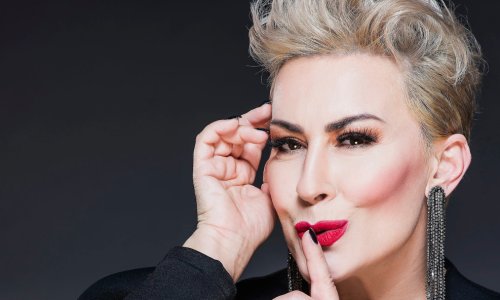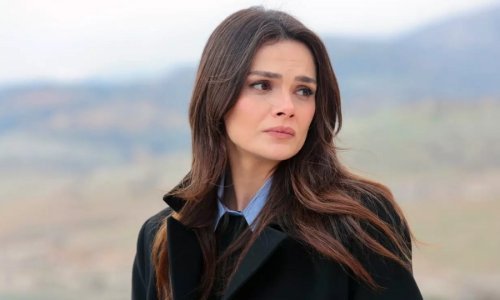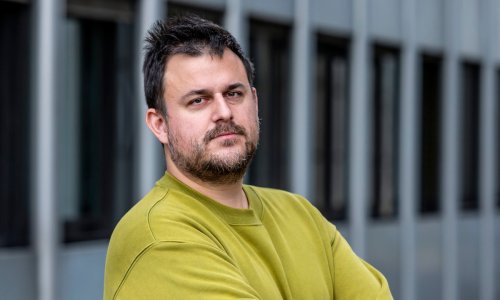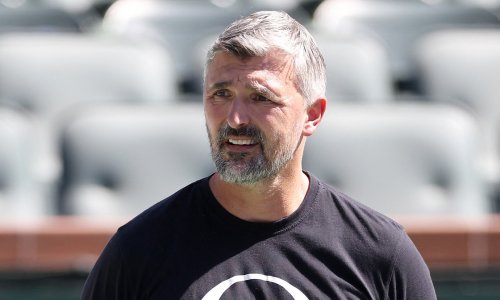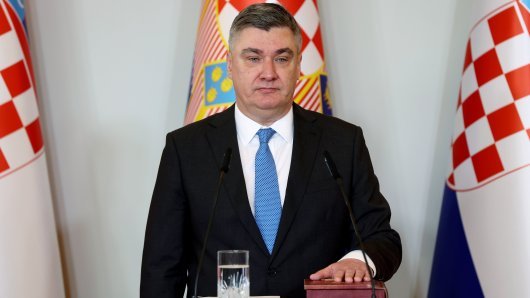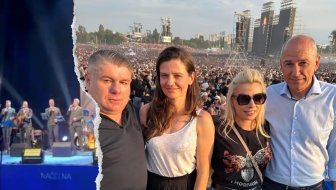Turkish Ambassador to Croatia, Burak Özügergin, will be a guest at this year's Sinjska Alka upon the invitation of Alka Knights Society. Since this will be the first time that a diplomatic representative of the Republic of Turkey will atend celebration of the victory over Turks in the area of Sinj, tportal talked to the said career diplomat about, among other things, Croatian-Turkish relations, Turkish ambitions in the Balkans and the contemporary border dispute of Croatia and BiH in the Mali Ston Bay.
Özügergin is the representative of modern Turkey, born in London, earned a Master's degree in International Law at the John Hopkins University. During his two-year stay in Croatia, he gave a strong impetuos to development of the two countries' relations in many spheres, particularly in economy, tourism and culture, and prompted activities of the Croatian-Turkish Friendship Association.
Were you suprised by the invitation to attend Alka and how come that you have accepted it?
The invitation did not come to me as surprise. I have met representatives of Alka on several occasions, they even visited me here at the embassy. For a variety of reasons I could not have accepted the invitation in the past; this year I am not going to miss the opportunity. Of course, I am happy to do so. The temperature and substance of our countries' relations are different today. I can tell you a hundred reasons for which a Turkish ambassador should dive deeper into Croatian culture. This is not rivalry culture. At the Alka, we should not be celebrating confontation, we should be celebrating cultural event instead, in order to emphasize how different things were once upon a time. This is why I am going to Sinj, not to emphasize the military but the cultural aspect of Alka.
How does Turkey view the legacy of the Ottoman Empire in Croatia and in the Balkans?
Ottomans and Turks later on, were not that bad as some might superficially think. Let's take Ragusa: the relationship between Dubrovnik Republic and the Ottomans was the main reason why Dubrovnik survived for so many centuries. I smile when I hear remarks about the 'Ottoman threat': just the opposite, – weakening of the Ottoman Empire led to the downfall of Dubrovnik. Throughout the critical moments in Croatia's history, Turkey was at the side of Croatia: Dubrovnik, the Homeland War, entering NATO, the fact is that the only foreign statesman on president Tudjman's funeral came from Turkey. My mission is to get people understand that the history between Croats and Turks is not as troublesome as it is commonly believed. We have to get rid of these delusions.
To protect itself from Venice, Dubrovnik passed to the Ottoman Empire control over Neum that lasted for almost 180 years. How do you comment on the contemporary border dispute between Croatia and BiH?
So, first you have to know what are you trying to achieve. Do you, as BiH or Croatia just want two small islands or something bigger? From the perspective of someone who is studying sea law and dealing with issues in the Agean Sea between Turkey and Greece, I think it is best not to get stuck. It is not the 'rocks' that create problems, but what are they generating for authorities and states. You have to step back and look at the neighborly relations, and this is exactly what I see your foreign minister and her counterpart from BiH are doing. It is a question of sovereignity, but also about being European. Sometimes a third party, who doesn't have a stake in the problem, may be helpful. EU will probably play its positive role in this too, as it has already done in the relations between Croatia and Slovenia.
Prime Minister Erdogan recently said that Alija Izetbegović, on his deathbed, whispered in his ear that Bosnia is entrusted to Turkey. Would you agree that Turkey is becoming the main foreign mediator in Bosnia?
I don't have a habit of commenting other people's sayings, especially when it comes to my Prime Minister. And necessary clarifications of that statement had already been issued. What Bosnia needs is not mediators, but a decision of its citizens that, regardless of ethnicity, religion, or any other affiliation, create a welfare state. We have always tried to play a positive role in Bosnia, but it is normal that it might not be received that way. Southeast Europe is an active area in international relations. It is not just Turkey that is tied up to the region; there are Russia, Austria, Germany, France, the US and others. It is unfair to single out one country's interest in BiH. It is not a scientific method. Ultimately, it doesn't matter if we have interests or not – the interests within BiH will take the country into future.
Milorad Dodik said that the goal of Republika Srpska is to 'defend itself from Turkish domination and neo-otomanism'. How do you respond to the growing fears from 'the second Ottoman invasion'?
It is important not to get stuck in a Cold war mentality. I have not heard what Mr. Dodid said, neither it is my duty or wish to comment on it. But, let me say the following: If we are trying to become Europeans in an institutional sense, by joining the EU, then we must thing in those terms. It means interaction, leaving behind the historical burden. It is not a secret that not everyone in BiH wants a future for BiH. But, there are ways of expressing political opinion. What happened in the early 90's was a very painful way of expressing a political idea, or ideal, and we all suffered. We all have friends and relatives who are no longer with us. So, yes, Turkey has and will have an interest, but it is not a devisive interest, but unifying, it is neither exclusive, nor selfish.
Turkey has shown a great interest in investments in Croatia. Which sectors are the most attractive and what obstacles do the Turkish entreprenuers mostly encounter?
Probably tourism. Like Croatia, Turkey is a tourist destination. Last year, we had 33 million tourists. So, our entreprenuers probably know a few things about hosting guests. What I have seen in my two years here, this country is just perfect for everything, and especially for tourism. The time is right; the infrastructure is being upgraded, you have the roads, airlines, excellent geographical position. Since we know how to manage tourist infrastructure, our joining into tourism development is what Americans call a 'no-brainer'. In Zadar and Šibenik area, for example, the largest Turkish consortium for marinas is present because the Eastern Mediterranean is full of yachts that need to be dragged here. If Croatia does not grab them, they will sail to other ports. So, since Croatia is beautiful as a postcard, why not do so? As for problems and obstacles, I am not under impression that Turkish bussinesmen are the only ones facing them. That would be awful and unaceptable. But, this is not the case. Croatia, nevertheless, needs to 'connect its dots'. We would like Croatia to succeed.
What do you think about Croatian tourist industry and its opposing development of mass tourism?
It is a decision Croatian people have to make themselves. I cannot say whether mass tourism is better or worse, whatever model Croatia decides on, it has to be efficient. Croatia can be a heaven for small tourist enterprises. I myself don't want to stay in a hotel with 5.000 rooms. Some people want such facilities, others like more modest, small, more 'human' offer. Big resorts have greater economic potentials, but whatever decision is made, you have to make sure it's efficient, because big enterprises are more difficult to control. If we are talking about small entrepreneurship or a combined model, you have to make sure that there is enough information. There are certain standards which have to be respected. If a Czech tourist goes to a small pansion and pays 50 euro per night, and e.g. the fridge is out of order, problem has to be fixed. Efficiency must be ensured.
Turkey is a key player on the global economy, with a decade of high economic growth, 9 percent as an average since 1998. With which stimulus measures did the Turkish government amortize the stroke of financial crisis?
The growth of Turkish economy did not happen by coincidence, it is a result of a good planning. We started with the banking sector – Turkish banks were subjected to various tests and simulations: what will happen if there is a sudden stop of inflow of direct foreign investments, if a bank collapses, etc. Necessary measures were taken. The health condition of the public sector was examined. You have to have a healthy and a fair tax-collecting system. If the tax payer feels that the system is fair and that others are also paying taxes, then everything functions in a better way. So, it is necessary to take measures that instill confidence to all participants of the system. At the very beginning of the crisis, our economic strategists declared a navigation plan through the crisis, an exit strategy. What will happen to a local grocery store owner, what to a car manufacturer? This strategy has been followed and implemented. So, there is also predictability which is 'feeding' confidence. Regardless the state of economy, you should make anticipations for the next year. This is what was done in Turkey, which for decades had two-digit, even three-digit inflation.
In the country with allegedly 99 percent Muslim population, how great was the role of the fact that after the decades of the rule of socialdemocrat CHP, conservative AKP came into power?
None, in that sense. You need to run the country not according to ideology, but based on consent and values. We think that for doing business is the best to separate the state and spiritual element. Turkey is being governed in accordance with modern governing practices, familiar to IMF, the World Bank, EU. It is also known that the AKP is gathering people with different visions and philosophies, but the majority is more traditional, conservative. They do not mix their philospophy and ideology with the way they are running business. In the 21st century, you don't have to 'discover hot water': a free market, regulated properly is the best way to organize economic activity. Freedom and rights such as freedom of speech is the way to organize social life; peace is the best way to organize international relations. Every freshman from the Faculty of Political Sciences is familiar with these principles. So, it doesn't matter if people are leftists or rightists, more traditional or more progressive. Principles of good governance are not secret and they can be followed by everyone. Of course, there will be shades, but the main principles are there.
The last reports of the European Commission and the Council of Europe, however, thoroughly question the readiness of Turkey to make progress in solving numerous problems in the human rights sector.
Surely, the first step towards better health is to diagnose the disease, to see the problem. Turkish Prime Minister, the ministers of justice, foreign and interior affairs – they all share opinion that there is a problem in the judiciary. Too many people are waiting for trials, too many of them are in jails. It means that the system needs to be changed. If in the Council of Europe the number of files from Turkey is unusually high, that means there is something wrong with local judiciary. If people don't trust the legal system, they will try out-of-court and extra-legal methods of resolving cases. New reformative laws are being discussed in the parliament. It seems, from the agenda of the parliament, that they have recognized and admitted there are problems and that they are resolving them. It is a good result of the EU accession negotiations: you can have a look at the reports and see things that you don't see from the inside, as long as the reports are fair, as long as they are not politically tainted.
Would you say they are politically tainted?
Sometimes yes. Look, according to the EU's own methodology, there are steps in negotiations. Croatia knows this very well. First, the Commission sends experts who are preparing screening reports, which then go to Council, and the Council tasks the Commission to help the country do what is necessary. This works in normal circumstances, but what happens when the screening reports are lost, when a negotiating country does not know what it has been officialy asked to do? There are 35 negotiating chapters, I believe 10 or 12 are under the carpet, we cannot get them. Why? Because people are not able to overcome their prejudices. I've been employed with the Foreign ministry for 28 years now. In the 80's, we were told that Turkey is too weak and too poor for the EU. Now they are telling us we are too big and too powerful! It seems we can never take the right side.
The Cyprus situtation has been mentioned as a big problem. What about it?
Cyprus is only a fig leaf. It is deeper than that. Maybe we are too Muslim? But, according to the concepts that we put on the table, about how we would like to live, we are not so much different from other members of EU. Consider how different is a Greek citizen from a citizen of Sweden, how different is an Italian from a Dane. Of course, we are different, but this is what makes life in Europe so good. Still, 18 negotiation chapters have been blocked to Turkey. Cyprus? In 2004 referendum on the reunion of the island, Greek Cypriots said 'no', Turks said 'yes'. It was logical to expect it because nobody told Greek Cypriots that they won't get into EU unless they solve this matter. Greek Cypriots were told by their leaders, the same ones who had agreed on a referendum, to vote 'no'. That is the bad side of the EU. And now this very EU cannot come to me and say – you promised this and that. They made a promise to the Turkish Cypriots: just vote 'yes' and we will make sure that you won't be isolated anymore. So, Cyprus is but an excuse. It's not about whether there's a crescent moon or a cross on your flag, it's about how you behave, from getting up until going to sleep.
How will the fact that Croatia has granted political asylum to Turkish activist Başak Şahin Duman, who in Turkey was sentenced to six years in prison for participating in 2004 protests in Ankara, influence the relations od the two countries?
Firstly, the whole case is still under review of Croatian judiciary. So, it is not appropriate for us to comment on it in a way that would be understood as trying to influence the case. But, obviously, we have made our opinion clear. In our opinion, this is not a political matter, it is a criminal matter. In Turkey, in Croatia, everywhere in Europe, you can publicly express your opinion as long as you don't damage property or hurt people. According to our video records, this was the case. I do understand concern about freedom of expression being restricted. If this was the case, that would be a big problem. But, not in a single EU country which Croatia will soon be a member of, damaging cars, throwing bottles, Molotov cocktails at the police, passes unsanctioned.
Still, six years in prison?
This sort of thing can be talked about, but it is up to legal experts to do that. It is not a job of a diplomat to argue in one way or another, on the other hand, it is a journalists' job to make sure that correct facts, in full are known. From our point of view, it is criminal matter, a case of violence. You should make sure that a 'big, nasty Turkish government' is not being automatically condemned by the public. I was not there, of course, I am talking about this on the basis of information I received from our judicial authorities. You cannot express your opinion by using violent methods. That is unnaceptable. The Croatian public should not be misguided.
How would Turkey like to see a post-Asad Syria and do you think that Kurdish successes in Syria could encourage Kurds in Turkey with regard to their demands for autonomy?
I told you which is the best way to organize economic, social and political life. It goes for our country and for our neighbors also. You have to have authentic elections that articulate the wishes of the people. In terms of social picture, Syria and all other countries must have a participatory system. It means that as a citizen, I have to be able to say what I think. The system must be majoritarian, but has to take into account political views of minorities. Full respect for human rights must be realized. This is how we want to see ourselves and our neigbhors, if we want freedom of movement, inflow of ideas and services and overcoming borders, isn't that exactly what the EU is all about? See, maybe it's not such a bad idea that Turkey enters the EU. It will be an asset, not weight.
What about Kurds?
Turkey, as a succesor of a multiethnic empire is home to so many different peoples. Do you know that we have maybe just as many Bosniaks in Turkey as there are in BiH? And almost equal number of Kosovars and Georgians in Turkey. We are talking about mentality that knows how to live with differences. The Jews? While European princes wanted to exterminate them in 1492, they found home in Turkey. In the Second World War, when such an attempt reocurred , they ran away to Turkey. So, you are talking to someone whose upstairs neighbor was an Albanian, downstairs was a Jewish jeweler, and we all went shopping at a Jewish store. There is no problem of 'genetics'. Just the opposite, I am claiming that Turkish psychology is more open to different cultures than many contemporary streams in Europe.



